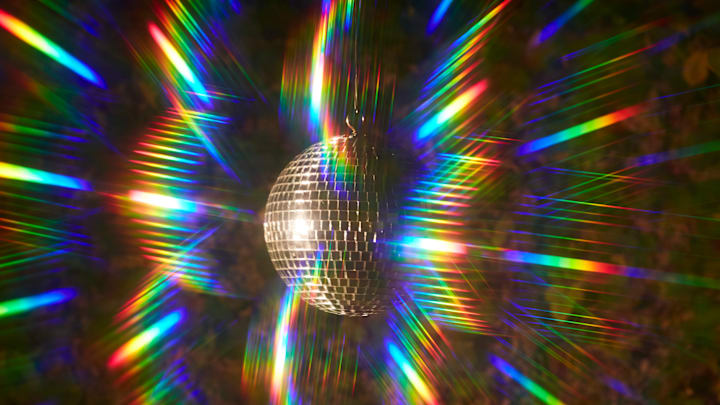Today, thanks to the movie Mary Poppins Returns (2018), the phrase trip a little light fantastic might conjure images of dancing chimney sweeps. But this colloquialism has strayed quite a bit from its semantic origins. While it has always referred to nimble, fleet-footed dancing, the imagery associated with trip the light fantastic is a matter of profound disagreement.
English poet John Milton (1608-1674), best known for his Biblical epic Paradise Lost, popularized the idiom in 1645 when he included it in one of his minor poems, “L’Allegro” (“The Happy Man”). In the poem, Milton called upon Euphrosyne, one of a trio of minor classical goddesses known as the three Graces (and fittingly, the goddess of good cheer) to dance—or, as he puts it, to “Come and trip it, as ye go / On the light, fantastic toe.”
In this early instance, the idiom isn’t an idiom at all—it’s literal. “Tripping it on the toe” was a very visual, recurring Renaissance phrase for agile dancing. It appears even earlier than Milton’s poem, in Shakespeare’s The Tempest (1610-11) when the spirit-servant Ariel promises to bring his fellow spirits to his master, Prospero, “Each one, tripping on his toe.” Milton supplies the words light and fantastic, both adjectives modifying toe and which emphasize the image of lithe, elaborate footwork. Milton’s rendering even caught the eye of Jonathan Swift, author of Gulliver’s Travels, who echoed it in one of his own poems in 1735: “See the Belle flutter with the sprightly Beau! / They trip it on the light, fantastic Toe!”
So far, so good … at least until Americans got involved. During this phase of the phrase’s life, the word toe tripped its way right out of Milton’s expression, giving us trip the light fantastic—a version of the idiom that is still familiar today.
It’s hard to determine the precise moment the transformation occurred, but some pinpoint the late-19th century song “The Sidewalks of New York”—whose lyrics included “Boys and Girls together / Me and Mamie O’Rourke / Tripped the light fantastic / On the sidewalks of New York”—as key in popularizing this version of the phrase. From there, it took off, showing up everywhere from a 1907 issue of The United States Army and Navy Journal to writer Nella Larsen’s 1929 novel Passing (which was adapted into a film for Netflix in 2021): In a room full of Black and white people dancing, Hugh Wentworth remarks to protagonist Irene, “Not having tripped the light with any of the males, I am unable to argue the point.” The phrase frequently crops up in literature, music, and film from the ’20s onward.
But trip the light fantastic was by no means done evolving. By the 1930s, some popular songs and literature had contorted the line even further out of shape with trip the light fandango. In 1967, the British progressive rock group Procul Harum included the phrase in their hit song “A Whiter Shade of Pale”—which American Songwriter says is about a “drunken sexual escapade gone awry”—with the lyrics, “We skipped the light fandango / Turned cartwheels ’cross the floor.”
Then, in 1973’s A Little Night Music, Stephen Sondheim twisted the phrase even more drastically into the lines “trip the light fandango” and “pitch the quick fantastic” in the happy-go-lucky number “The Miller’s Son.” (Sondheim, interestingly, was unaware that Milton coined a version of the phrase he’d used, and it’s unclear whether he knew of the Procul Harum song.) The fandango is a type of lively Spanish dance with roots in the early modern period, so to “skip” or “trip” a fandango simply means to dance the fandango.
Small wonder that linguist Noam Chomsky called trip the light fantastic a “syntactically ill-formed idiom”: Its syntax, or sentence structure, has changed again and again, until it’s unclear just what mental picture this phrase was intended to evoke—whether dancing the fandango or, more metaphorically, skipping across a beam of light. One thing is certain: Trip the light fantastic has tripped its way from early modern England to the present day as blithely and fantastically as a nimble dancer.
